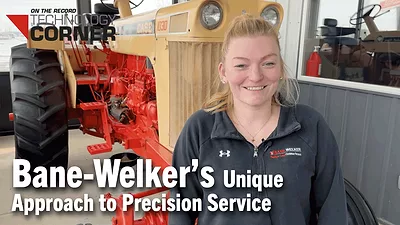Frustration if often a byproduct of progress and as any precision specialist will tell you, helping customers integrate new technology into their operation comes with a hitch or two.
Having a confident understanding of a customer’s farming practice and objectives is an asset when it comes to troubleshooting technology and equipment problems. This is especially true when it comes to more niche farming practices, which tend to require more systematic management methods.
Strip-till is certainly a practice that fits this model, and having visited with dozens of strip-tillers, they are among the more innovative farmers — in part because of the essential role precision technology plays in their operation.
Many of the features in our ‘What Farmers Want From You’ series highlight both the successes and challenges strip-tillers encounter with adoption of precision tools, from equipment compatibility to maintaining a reliable GPS signal.
Plenty of tech headaches are universal. But talking with dealers who have taken the initiative to gain at least a working knowledge of strip-till, the effort is often rewarded, strengthening customer relationships or creating new sales opportunities.
“I emphasize strip-till as a concept, because that’s what it is and where it starts before the iron,” says James Fehr, general manager of Jenner Ag’s application division. “Every seed and plant counts and we’ve been able to show customers how strip-till can get them where they want to be. That’s going to continue and there’s opportunity for dealers who understand how to sell the concept, rather than just the equipment.”
A recent special report by Farm Equipment editors analyzed the growth potential and support needs of a strip-till system, from both the perspective of farmers and dealers. With a sense that dealer support is lacking, while interest is growing, strip-till may present an untapped market for dealers.
This year’s 4th annual National Strip-Tillage Conference in Omaha on Aug. 3-4 (immediately following the 2017 Dealership Minds Summit) will for the first time feature a dealer-led discussion with advice on how best to support a strip-till business, along with sessions tied to moisture sensing and data management.
While strip-till isn’t a fit for every dealer, the opportunity to match the method with the machinery could create a unique opportunity.






